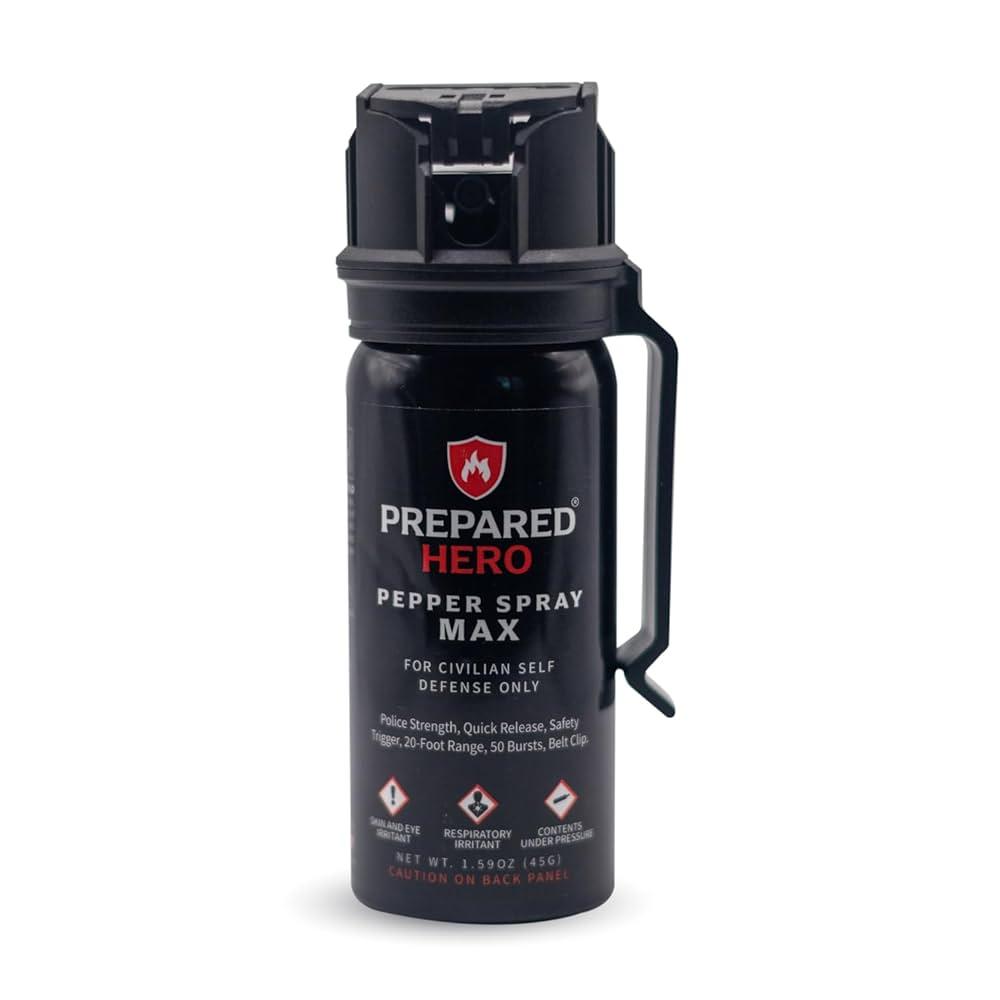Table of Contents
- Understanding Pepper Spray and Its Legal Classification
- When Use of Force Is Justified in Self Defense Cases
- Legal Restrictions and Safety Precautions for Pepper Spray Users
- Practical Tips for Responsible Use and Avoiding Legal Consequences
- To Wrap It Up
Understanding Pepper Spray and Its Legal Classification
Pepper spray, also known as oleoresin capsicum (OC) spray, is a chemical agent designed to temporarily incapacitate an attacker by causing intense eye irritation, coughing, and breathing difficulties. It is widely recognized for its effectiveness as a non-lethal self-defense tool. However, its potency and potential for misuse have led to varied legal classifications across different jurisdictions. In many regions, pepper spray is categorized under controlled defensive weapons, which means owning or carrying it may require compliance with specific regulations such as permits, age restrictions, or restrictions on concentration and container size.
Understanding the legal framework governing pepper spray is crucial because misuse can lead to criminal charges or civil liability. Common legal considerations often include:
- Permissible purposes, typically self-defense only;
- Restricted areas where carrying pepper spray may be prohibited, such as schools or government buildings;
- Limitations on delivery mechanisms, including restrictions on types of sprays or accessories;
- Reporting and use-of-force laws that govern when deployment is justified and how it should be handled legally.
When Use of Force Is Justified in Self Defense Cases
Use of force in self-defense is legally permissible only under specific circumstances. Generally, the key factor is the presence of an imminent threat to your safety or the safety of others. This means you must reasonably believe that you are facing immediate harm or unlawful force, and your response must be proportional to the threat posed. For example, using pepper spray in response to a non-violent confrontation may be deemed excessive and unjustified in the eyes of the law. The force you use should aim to neutralize the threat without escalating the situation unnecessarily.
It’s important to note that self-defense laws vary by jurisdiction, but some common principles apply universally:
- Immediacy: The threat must be immediate and unavoidable.
- Proportionality: Force used should not exceed what is necessary to prevent harm.
- Duty to retreat: In some areas, if safe retreat is possible, you must attempt it before using force.
- Reasonableness: Your perception of the threat must be based on what a reasonable person would believe under similar circumstances.
Legal Restrictions and Safety Precautions for Pepper Spray Users
Before carrying or using pepper spray, it is essential to familiarize yourself with the specific legal guidelines in your jurisdiction. Laws vary widely, with restrictions often placed on the type, concentration, and size of pepper spray canisters permitted for civilian use. Some areas may prohibit possession by minors, require permits, or restrict usage to self-defense situations only. Violating these regulations can lead to legal penalties, including fines or criminal charges. To remain compliant, always purchase pepper spray from reputable vendors who clearly label their products according to local standards.
Safety should be a top priority when using pepper spray, not only to maximize its effectiveness but also to prevent accidental injury. When handling pepper spray, avoid spraying indoors or in areas with poor ventilation to reduce the risk of affecting bystanders or yourself. Always practice proper aiming-targeting the attacker’s eyes and face-and maintain a safe distance to minimize chances of blowback. Remember to store your pepper spray securely out of reach of children and regularly check expiration dates to ensure potency. Incorporating these precautions will help you use pepper spray responsibly and confidently when the situation calls for it.
- Check local laws before purchasing or carrying pepper spray.
- Never use pepper spray as a prank or threat; it is intended strictly for self-defense.
- Practice with an inert training spray to become familiar with the canister’s function.
- Keep a safe distance to avoid accidental exposure to yourself or allies.
- Replace expired spray promptly to maintain effectiveness.
Practical Tips for Responsible Use and Avoiding Legal Consequences
When carrying pepper spray, always ensure that you are familiar with your local laws and restrictions, as regulations can vary significantly from one jurisdiction to another. Only use pepper spray as a last resort in self-defense situations when there is a credible threat to your safety or the safety of others. Misuse, such as deploying it during an argument or to intimidate someone, can lead to serious legal repercussions including fines, criminal charges, or even imprisonment. Keep the canister easily accessible but secure, and avoid any actions that could be perceived as aggressive or provocative. Remember, responsible use not only protects you physically but also legally.
In addition to proper use, consider these practical guidelines to avoid legal trouble:
- Check expiration dates regularly, since expired spray can lose effectiveness and might be illegal to carry.
- Take a training course on how to deploy pepper spray correctly and safely.
- Document incidents where you have to use pepper spray, including taking photos or getting witness statements if possible.
- Avoid use in confined or public indoor spaces where innocent bystanders could be affected.
To Wrap It Up
In today’s unpredictable world, understanding the legal boundaries surrounding pepper spray and use of force is more important than ever. While pepper spray can be an effective self-defense tool, knowing when and how it can be used lawfully helps you protect not only your safety but also your rights. Stay informed, stay prepared, and always prioritize responsible decision-making when it comes to personal protection. Remember, knowledge is your best defense.Check Our Other Blogs
- StunGun – Your Trusted Source for Stun Guns, Laws, and Self-Defense Tips
- PepperSprayLaws – Your Trusted Resource for Pepper Spray Information
- StunGunLaws – Your Trusted Guide to Stun Gun Legality and Safety




